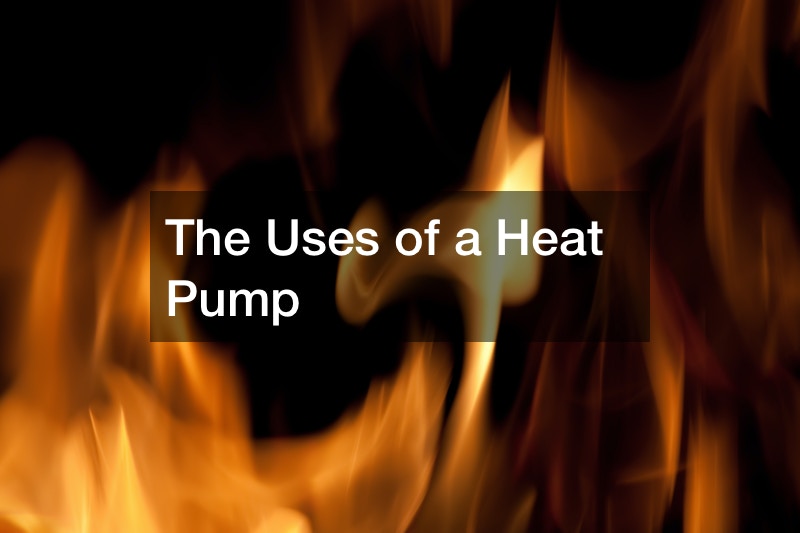
Heat pumps play a vital role in regulating cool air in specific HVAC and refrigerator systems devices. There are various components of a heat pump HVAC system and regular maintenance is important. Here are 3 ways to tell that you may need a new 2-ton heat pump or one of different size is by observing the following:
#1 The bills while using the cool setting are high
When it comes to using your air-conditioning system or another cooling device that relies on a heating pump to keep areas cool, it shouldn’t raise the bills. HVAC gauges read the liquid pressure of the system. Bills while using the cooling setting are higher because the heat pump and HVAC system have to work harder to make certain functions work.
#2 Your heating pump is loud
Sounds can be good or bad and they represent many things. If your AC becomes louder, this is usually a bad thing. Noisy systems could signal problems with the heating pump. The pump may need replacing or maintenance.
#3 Less cooling efficacy
When your HAC or refrigerator is reducing its ability to cool down or keep things cool, then you know the heat pumps might be broken. Whether you have a closed loop water source heat pump system or an open source version, both need maintenance. You can also compare heat pump brands to get the best bang for your buck.
American homes often have climate control utilities built into them; that is, air conditioning, a furnace, a heat pump, and so on. What is a heat pump? This is a device that can regulate the flow of heat, either to cool down or warm up a certain area with the use of condensers and heat sinks. A new homeowner will have to become familiar with the utilities in their house, and such a person may indeed wonder “what is a heat pump?” This topic is simple enough, and ordinary air conditioning services can be called upon, or furnace repairs contractors, to fix various heat pump systems. When a home’s heat pumps are worn out or faulty, it’s time to get professionals on the scene to fix things. What sort of problems might affect a heat pump? And for those who don’t know, what is a heat pump, anyway?
What Is A Heat Pump
Put simply, a heat pump is a system that will collect heat energy from one area and transfer it to another. Such pumps can either collect heat from a warmer area and transfer it to a cooler one, or they may collect heat from cooler areas and pump it to warmer ones. The latter may require extra energy to resist the natural flow of thermal energy. A refrigerator, for example, is a fine example of a heat pump. Such a device gathers the heat energy inside the fridge and pumps it out to the external air, thus keeping the interior cool to a pre-set temperature. The same function can be found in a freezer, to make the interior even colder.
And of course, conventional air conditioners work the same way. But what about heaters? In this case, a heat source, such as a furnace, will generate this heat. Heat pumps, in turn, will gather that heat with their condensers, transfer it, then release it all into a home’s cooler air to warm it up. Such a function is essential for homes in winter and those found in cooler climates. And in the average American home today, the heating and cooling systems account for around 54% of the energy that the home uses. What might happen if this system becomes faulty?
Damage and Repairs

A lot might go wrong with ah ome’s heating and cooling systems, and if the system is strained and overworked, it will use up a lot of power and thus drive up the electric bill. One affliction might be simple dirt. The blower fans deep in the system, for example, may become coated with pollen, dust, or other materials over time, and this can weaken their power output. In turn, the system has to work overtime to compensate, and that drives up the electric bill. Something similar might happen if squirrels break into the house and start building nests in the air ducts, which impedes air flow. If the outdoor unit is clogged with dust or pollen on the inside, its efficiency drops.
Mechanical issues might also strike. The air ducts may develop holes or rips, or they might shear off. This means that they leak air, and once again the system must work extra hard to compensate. Other times, the blower fans may wear out and have a lower output, or the furnace may be wearing out after many years of use. And of course, if a heating and cooling system is very old, such as 20 years old, it will often break down, and it will not meet modern energy efficiency standards.
Lastly, the home might be the issue. Walls or attics with thin or missing insulation tend to leak warm air in winter and cool air in summer, and this disrupts the climate control. Drafty windows or doors might cause a similar issue.
Furnace or HVAC repair crews can be found in a homeowner’s local area, and an online search or consulting a hardware store’s staff can yield a list of contractors. Such workers may clean off the blower fans or remove squirrel nests, or they may repair the air ducts or replace the blower fans. Crews can also replace an old furnace, or overhaul the HVAC system with a newer and more energy-efficient model. This saves electricity and thus money over time.
